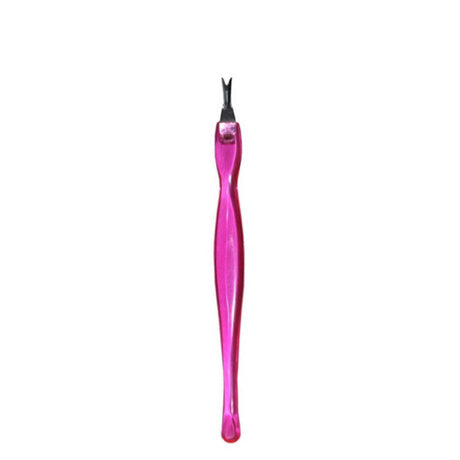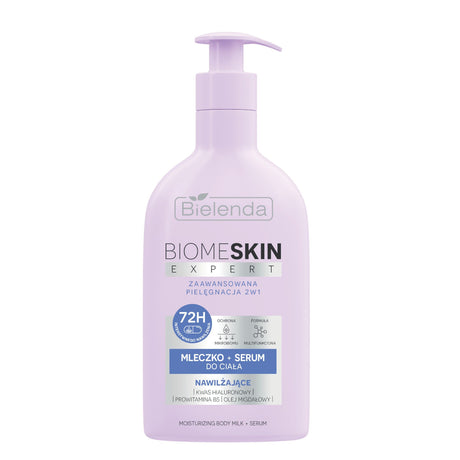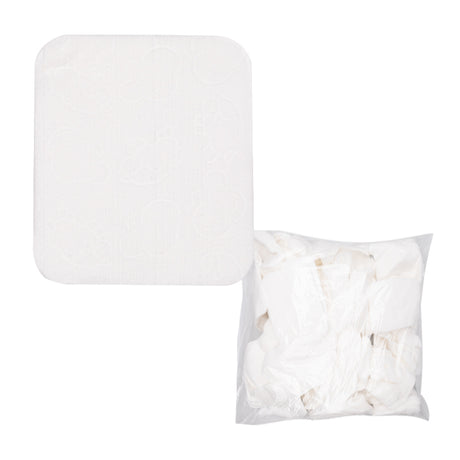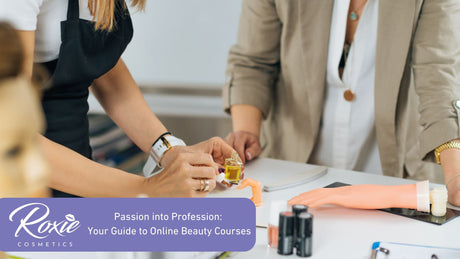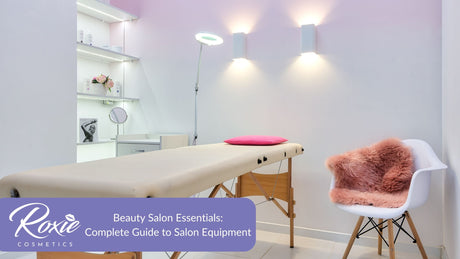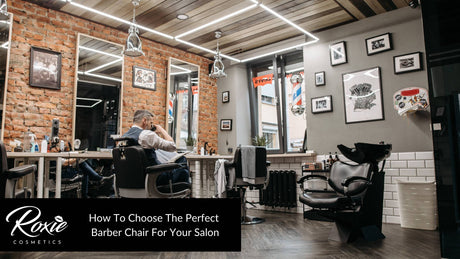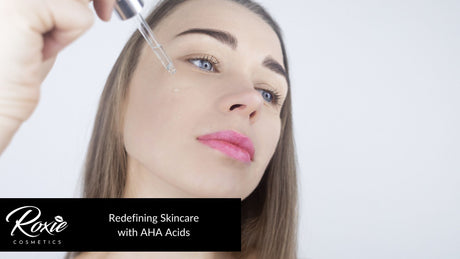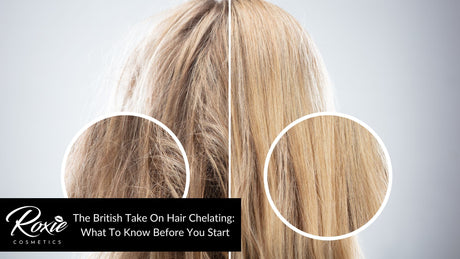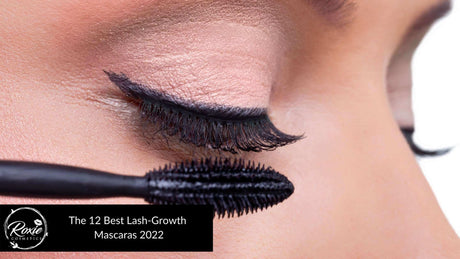Problematic skin requires exceptional care during daily care. However, different problems require different solutions. Today we will look at the most common problems and how to solve them.
What type of skin do I have?
The first step in determining the right skincare routine is to identify your skin type. The way it works depends on the individual needs of your skin. Different care should be implemented for dry skin, different for oily skin, and yet another for acne skin. Below we present the characteristics of individual skin types, ways to recognize them and the proper way to care for each of them. First, however, let's answer the question, what are the types of skin and what types can we distinguish? Each skin, depending on various environmental or genetic conditions, has a set of specific features that affect its condition and the appearance of any imperfections. Unless you control your genes, if you have skin problems, you may have one of the following causes that you are able to change.
Cause |
Description |
How to eliminate it? |
|
The quality of the face wash water |
Hard or dirty water can cause breakouts |
Try washing your face with filtered or bottled water |
|
Staying in the sun |
The sun may have a temporary effect on improving the condition of acne-prone skin, but then the disease usually comes back quickly |
Use good quality creams with protection of at least 50 SPF; pay attention to the composition so that it is friendly to your skin type |
|
Stress |
Stress can aggravate skin problems, especially if you have acne-prone skin |
Try to eliminate the stressful elements and if you are unable, try to learn how to deal with stress. Exercise, yoga, meditation, meeting friends and even herbal teas can help |
|
Diet |
An unhealthy diet containing heavily processed foods, high in sugar, fat, salt, or hot spices can cause breakouts |
Try to eat a healthy, unprocessed diet rich in fresh fruit and vegetables |
|
Care |
Lack of proper care results in skin defensive reactions, which can exacerbate the problems |
Use cosmetics appropriate for your skin type and try to implement a daily routine of cleansing and nourishing your skin in the morning and evening. |
Knowing the influence of exemplary environmental factors, we can also learn about different types of skin. If you are wondering "What type of skin do I have?", Our cheat sheet will help you figure it out.
Normal skin - give it a little attention and it will pay you back
We start with the standard type of skin that causes the least care for its owners. It is normal skin, neither showing a tendency to excessively greasy nor suffering from dryness. This skin is relatively easy to care for because it is enough to provide it with a basic skincare routine to unleash its natural beauty. Normal skin likes regularity, so try to cleanse it with foam or gel every day, tone it up and apply a light moisturizing or nourishing cream. Normal skin may have slightly enlarged pores or blackheads that can be eliminated with mechanical peels with the addition of activated carbon. This type of skin also likes all kinds of vitamins. Use a vitamin C or E mask once a week to give your skin a glow and softness.
Sensitive and dry skin - provide it with a solid dose of hydration
You will recognize dry skin by the fact that you feel an unpleasant tightness after washing. It may also have a tendency to redness and irritation. In the care of dry skin, it is most important to moisturize and protect it. If you have the impression that the skin is dry, the cream is difficult to absorb, and the foundation you use for make-up emphasizes dry skin and rolls in a specific way, start your care with a gentle enzyme peeling or a peel-off mask. Then apply a richly nourishing and moisturizing mask. After each wash, remember to use a moisturizing toner, which is best sprayed on your face instead of using a cotton pad. Do not forget about the nourishing serum, applied to the skin moist with tonic. Then, be sure to use a cream rich in moisturizing and protective ingredients. Try to protect your skin from external factors. Before going out in the sun, use sunscreen and apply it every few hours. Also remember that dry skin can react badly to rough handling such as:
- rubbing too hard with a towel - dry the skin by putting a towel to your face instead of rubbing it
- air conditioning - protect the skin with a protective cream
- rubbing and touching the face - dryness can cause itching, so be careful not to touch your face
The advantage of this type of skin is that it is relatively easy to restore its balance. Regular peeling will allow you to get rid of dead skin, and masks based on oils and plant extracts will allow you to quickly moisturize it. Especially use sheet masks that facilitate the penetration of nutrients into the skin. However, avoid preparations containing alcohol.

A special type of dry skin is couperose skin. It primarily needs vitamin K in cosmetics, but also in the diet. If you also have sensitive and allergic skin, try to use cosmetics that do not contain potentially allergenic ingredients. Always make an allergy test before introducing a new cosmetic. It is also worth considering resigning from washing with water and using special cleansing foams that you can massage into the skin with your fingers and remove with a cotton face towel.
Oily skin - regulate and moisturize
Oily skin is characterized by an increased secretion of sebum, which may result in a feeling of oily skin. You will recognize it by the fact that you feel a greasy layer on it to the touch, it can also glow excessively. Parallel to oily skin is usually enlarged pores and a tendency to breakouts. Paradoxically, oily skin does not require drying. Excessive production of sebum is the result of a disturbance of the natural processes of retaining hydration inside the cells and requires the regulation of these processes and the provision of an appropriate dose of care. Therefore, do not use alcohol-based astringents, which can aggravate the problem. Choose natural, regulating care and a large dose of hydration. Try to cleanse pores regularly in the morning and evening, and never forget to remove makeup before going to bed. Use a moisturizing essence before applying the regulating cream. In the fight against imperfections, try antibacterial cosmetics that do not dry out.
Combination skin - rough love and tenderness in one
This type of skin combines the features of oily skin and dry or normal skin. It is most often oily in the T-zone, which includes the nose and forehead or chin. The cheeks may remain dry. Therefore, the care method should be selected carefully. You can use other cosmetics to moisturize dry areas and others to regulate oily skin in the T-zone. However, it is also worth reaching for special products intended for combination skin. They contain ingredients that provide everything a combination skin may need, i.e. a solid dose of hydration and substances that regulate oily skin. The basis of this type of care is to balance the skin's balance with ingredients such as anti-inflammatory plant extracts and natural moisturizing oils. Try not to use heavy cosmetics that can clog the pores.
Acne skin - specialist care
An extremely problematic type of skin. May have the characteristics of oily skin with dry areas. Acne skin is also characterized by numerous blemishes and inflammations. Often, in this case, consultation with a doctor or dermatological care is necessary. Acne skin can be the result of many factors: from stress to hormonal causes. The best results in the fight against acne will be achieved by dermatological treatment and the elimination of all factors that may aggravate the problem. However, you can support the treatment proposed by the doctor by using appropriate care. So avoid stress, follow a healthy diet and take care of a solid dose of hydration in a form that does not clog the pores. Above all, however, you should give up drying cosmetics, which usually worsen the skin condition. Use light creams based on plant extracts and oils. The basis is also proper skin cleansing and extremely strict compliance with hygiene rules. Cleanse your skin in the morning and in the evening - water-free foams can be useful here. If you wash your face with water, make sure it is not too hot. Cool or warm water will bring relief and help regulate the skin's defences. Use sterile towels to dry your face - they can even be disposable paper towels, as long as they don't leave any particles of paper. Avoid mechanical peels and cotton pads as these can promote the spread of bacteria. Try not to touch your face during the day, do not rub it with your fingers and under no circumstances squeeze out pimples and blackheads. Try to avoid the sun and always use sunscreen as the sun's rays destabilize your skin, which is already fragile and irritated by inflammation.
Irritations and allergies
Each type of skin can sometimes suffer from various allergies, sensitivities and irritations. The skin can show allergic reactions even under the influence of substances to which it has previously reacted positively. That is why it is important because you control its condition and always know what ingredients are contained in the cosmetics you use. However, sometimes the cause of irritation is beyond our control and it will be difficult to find. In this case, remember that you can always consult a doctor, especially if irritation persists for a long time. If you are aware of your allergy tendency, use hypoallergenic skin care that does not contain ingredients defined as allergens.
Worth knowing:
- Proper hydration is the basis for all skin types and you can also provide it from the inside. Make sure to drink plenty of water throughout the day - this should be around 2 litres a day
- For serious problems that cannot be eliminated with home care, do not hesitate to seek the help of a doctor or dermatologist. It is better to ask a specialist for help earlier than to struggle with the consequences of bad decisions for years. Remember that your face is your showpiece that will accompany you throughout your life.





